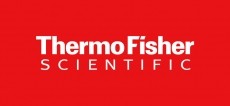Europe tightens controls on drug precursors
trade in two compounds used for both legitimate pharmaceutical
applications and the manufacture of illicit drugs, writes Phil
Taylor.
The measures are designed to prevent the diversion of acetic anhydride and potassium permanganate, used in the production of heroin and cocaine, respectively. The aim is to reduce the regulatory burden on companies by rationalising current legislation in this area, which includes no less than 6 separate directives and regulations.
Both compounds are sold in large quantities for application in the pharmaceuticals and chemicals industries. Potassium permanganate is used in analytical applications and in synthetic organic chemistry and as an ingredient in antibacterial and antifungal preparations. Acetic anhydride is mostly used in the manufacture of cellulose acetate for films and plastic goods, but a proportion also goes to make aspirin and other pharmaceutical agents.
The new measures are designed to improve the control and monitoring of these substances, as well as increasing the accountability of companies - and specific individuals within them - to discourage diversion.
For example, manufacturers must obtain a license to make the compounds and nominate an officer to oversee the business who will be the point of contact for regulatory bodies. The authorities must be notified of any changes in personnel, premises etc.
Customers wishing to use the substances must provide a declaration of their intended use, for each shipment that passes through the European Union. The import and export of such substances is covered by separate legislation.
The 2003 annual report of the European Monitoring Centre for Drugs and Drug Addiction indicated that over the last decade there have been between 7,000 and 9,000 drug-related deaths reported every year in the EU and Norway and the trend is growing, with the people most affected being in their 20s and 30s.
"The effective control and monitoring of these precursor substances has proved to be one of the most valuable weapons in the fight against drug trafficking," commented Erkki Liikanen, the EU's Enterprise Commissioner.
A spokesman for Celanese, one of the major suppliers of acetic anhydride, said that the worldwide capacity for the chemical is 2,600 kilotonnes, with demand at 2,100 kilotonnes. About 5 per cent of the demand is from the pharmaceutical industry.









